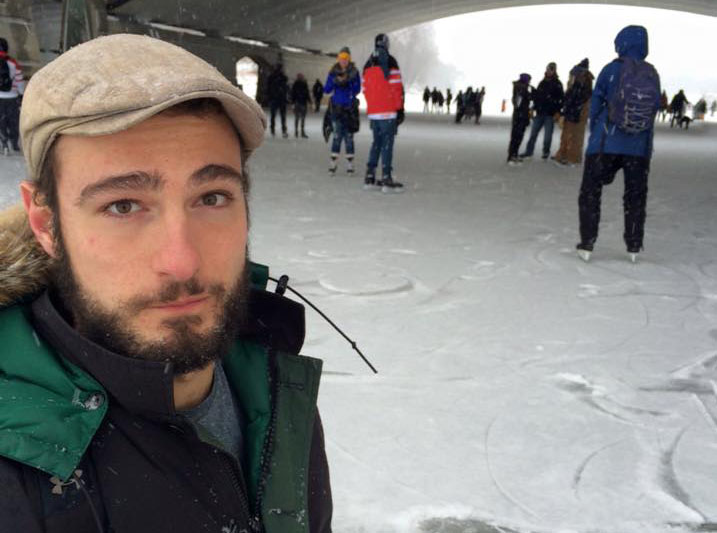“You inspire me.”
“That’s so impressive. I would never be able to do that.”
“I feel like a lazy piece of shit after watching you.”
At the risk of sounding vain, sentences like this are uttered to me on an almost daily basis. How should they be interpreted? As compliments? As words of encouragement? Declarations of self-help strategies for the not-too-distant future? Perhaps in intention, it’s all three. However, from down here, it looks to me like some people are slightly missing the mark. You’re inspired? Cool. Now what?
Words influence every aspect of human life. The dialogue that surrounds disability has created unnecessary barriers in my opinion. Not just for disabled individuals but society as a whole.
Let’s consider for a moment, a random, regularly performed task. Since we’re on the East Coast, let’s say, putting on a jacket. We’ve all done it a couple times. Probably a couple thousand times, yours truly included. However, if I’m putting on a jacket in public and I manage to get it done despite a barrage of helpful sneak attacks by kind, yet complete strangers who think it’s appropriate to help an adult man put clothing on without his consent – chances are, it’s drawing a bit of attention. Honestly, I don’t blame people for looking. My jacket whipping up over my head kind of looks like one of those arm-flailing tube people you see in used-car lots. It’s probably hilarious. At the very least, it’s different.
However, when someone sees a disabled individual doing something of this nature, the formula generally goes like this:
That person has a limitation – let’s call it [A] – yet regardless, they have managed to achieve a level of normality – let’s call this [B]. I, on the other hand have reached [B], without having to deal with [A]. I feel guilty because of this, and thus am inspired to do more.
Still with me?
The problem is that feeling of perceived guilt is a narrative based on the notion that a disabled person living a normal life is a monumental achievement in and of itself. The astonishment is misplaced.
When someone sees me putting on a jacket, and they make a comment like, “That’s amazing!” – sometimes I want to reply with “Hell yeah, it kind of is. I’ve put a lot of time and effort into working out various techniques like this. I’m sure you’ve achieved things of this nature in your own life, and that’s amazing too.” But I can’t because it often leads to feelings of guilt in the other person, like they’ve offended me in some way. So I usually just smile and say thank you.
But what if, rather than looking at what’s missing, we shifted our focus to what we have in common? We are human, you and I. Though our experiences may profoundly differ, we share a similar path.
I’m a human being first, and disabled second. The more you look at our differences, the farther apart we drift, and the less relatable our stories become. My life has hurdles. Unavoidable ones. But any strength that I’ve had to call upon in meeting them, is present in all of us.
I am extremely grateful for the opportunities life has given me. I am proud of my independence, and what I have achieved in life thus far. Growing up, I was fortunate to have two wonderful, loving, grounded parents who were strong enough to let me figure things out on my own. Because of this, I have developed a fairly sturdy sense of self, along with a healthy confidence.
I acknowledge, wholeheartedly, that my difficulties are not as insurmountable as those faced by some disabled individuals. I can walk, speak, climb and carry, and I know some people are unable to do so.
That is why I choose to speak on this subject. I do not believe that my actions are fundamentally more inspiring than those of others. I have been presented with a difficulty, and I’m still here. It’s not extraordinary. It’s life. We all have our struggles. We overcome them, or we don’t. In principle, no challenge is more relevant than any other. Facing those challenges is what really matters.
I have been given opportunities to practice patience, understanding and self-love. It breaks my heart to see these practices absent in the lives of others or to hear doubts of their existence in mine. We are all capable of great things. By simply being here, we make a difference.
The world is in need of human connection, perhaps now more than ever. The existence of life is at a decidedly crucial juncture. Our generation may have to face real possibilities of environmental disaster. I don’t claim to know how this can be averted, but I can say with a fair bit of conviction that whatever we do, we’ll need to work together. Our differences shouldn’t separate us; we’re all hurtling through space on the same blue rock.
I think we are better than the things that divide us. I think all people, of all ability levels, can contribute to the betterment of the world. We got ourselves to this point, and we can take ourselves further.
So for the sake of mutual enlightenment, the next time you see a disabled person, be genuine. If you have questions, no matter how inappropriate you may think they are, ask them. That is the only way to get answers. And if you don’t know what to say, then listen. I am aware that at times, I project a similar, disability-related awkwardness. But I’m working on it. That’s all a person can do, and it’s all I look for in return.
I’ll leave you with some words, from the infinitely wise Dr. Seuss:
“Don’t give up, I believe in you all. A person’s a person, no matter how small.”

